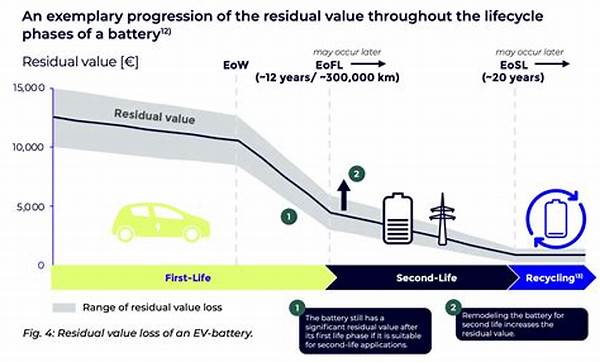
Vehicle Residual Value Improvement
In today’s fast-paced world, making the right investment in a vehicle can be challenging yet rewarding. Understanding the dynamics of vehicle residual value improvement is essential for maximizing your investment’s return. By enhancing the residual value of your vehicle, you not only safeguard its worth but also enjoy better resale options. This article will explore various strategies to improve vehicle residual value while offering valuable insights for car owners and potential buyers. Enhancing residual value is not just a financial strategy—it’s a commitment to sustaining quality and longevity in an ever-evolving market.
Read Now : Automotive Error Code Troubleshooting Tips
Strategies for Vehicle Residual Value Improvement
Elevating your vehicle’s residual value starts with understanding market trends, maintenance, and making informed decisions. By staying updated with these strategies, you can effectively enhance your car’s resale potential. Here are three key points to consider in improving vehicle residual value:
Firstly, regular maintenance is paramount. Keeping a vehicle in top condition through routine servicing ensures longevity and performance, directly contributing to vehicle residual value improvement. Consistently maintaining service records demonstrates to potential buyers that a vehicle has been well-cared-for, making it more appealing and valuable in the resale market.
Secondly, understanding the automotive market and consumer preferences can significantly impact a car’s resale value. Staying informed about popular models, features, and technologies ensures your investment remains competitive. Opting for timeless designs and essential upgrades can lead to substantial vehicle residual value improvement.
Finally, factors such as color, mileage, and interior condition play crucial roles. Choosing neutral colors and managing mileage can positively affect your vehicle’s perception and desirability. Taking proactive steps to maintain a pristine interior also boosts vehicle residual value, attracting discerning buyers willing to pay a premium.
Benefits of Focusing on Vehicle Residual Value Improvement
1. Financial Gain: By focusing on vehicle residual value improvement, you ensure a higher resale value, maximizing return on investment when it’s time to sell or trade.
2. Enhanced Longevity: Improving residual value often involves better maintenance, meaning your vehicle will be reliable and efficient for longer periods.
3. Market Appeal: Vehicles with documented improvements in residual value are more attractive to potential buyers, ensuring quicker sales.
4. Lower Depreciation: Proactively managing factors affecting residual value can slow down depreciation, preserving more of your car’s worth over time.
5. Better Financing Options: Higher residual values can lead to more favorable financing terms, making vehicle purchases more affordable.
Effective Methods for Sustaining Vehicle Residual Value Improvement
When it comes to vehicle residual value improvement, leveraging effective methods ensures lasting results. Maintaining your car’s legitimacy and desirability in the marketplace requires diligence and strategic planning.
Firstly, regular documentation of repairs and maintenance can significantly bolster buyer confidence, reinforcing the perception of value over time. Utilizing certified service centers gives you an edge in delivering evidence of consistent care, which is crucial for vehicle residual value improvement.
Secondly, customizing vehicles with non-standard features or over-the-top modifications might decrease residual value. Staying conservative with accessories and focusing on essentials guarantees a broader appeal should you decide to resell.
Read Now : On-site Vehicle Repair Services
Comprehensive Guide to Vehicle Residual Value Improvement
For holistic vehicle residual value improvement, awareness and proactive decision-making are essential. Each vehicle is an investment, requiring careful thought about how your actions today will affect its value in the future.
Luxury vehicles often hold their value better than economy models due to brand prestige and higher-quality materials. Evaluating initial purchase decisions based on these factors can enhance long-term ownership satisfaction and financial outcomes.
Fuel efficiency is another practical area impacting residual value. Environmentally conscious buyers often seek vehicles with economic fuel consumption, aligning with global sustainability trends. As such, ensuring optimal fuel efficiency can greatly contribute to vehicle residual value improvement.
Detailed Insights on Vehicle Residual Value Improvement
Routine Maintenance and Care
Maintaining a high residual value involves consistent attention and care. Regular servicing, timely oil changes, and adhering to manufacturer-recommended schedules can significantly impact vehicle residual value improvement. Ignoring regular upkeep can lead to mechanical issues that depreciate the car’s worth, creating avoidable losses.
Besides mechanical maintenance, simple cleanliness can elevate a vehicle’s perception. Clean interiors and exteriors reflect the care level provided and assure potential buyers of its condition. Stains, odors, and visible wear and tear can deter prospective buyers, emphasizing the paradox of perceived neglect in overall vehicle condition.
Modernizing with Technology
Adapting to technological advancements is another way to ensure vehicle residual value improvement. Installing up-to-date navigation systems, Bluetooth connectivity, and multimedia capabilities can attract tech-savvy buyers interested in modern features. These upgrades can provide a competitive edge when it comes to resale value.
Understanding buyer preferences for connectivity and tech innovations allows smart investments in aftermarket upgrades. Keeping technology modern and relevant ensures the vehicle meets expectations, furthering desirability in resale markets.
Crafting a Resilient Strategy for Vehicle Residual Value Improvement
Having a strategy dedicated to vehicle residual value improvement ensures long-term benefits. Creating a maintenance schedule, evaluating modernization potential, and understanding market shifts are integral to sustaining a valuable asset.
Purchase decisions also play an essential role. Opting for models with known lasting popularity rather than passing fads ensures the asset retains its appeal. Awareness of insurance premiums and repair costs associated with different models influences ongoing financial planning, essential for vehicle residual value improvement.
Ultimately, vehicle residual value improvement is not just about enhancing resale potential—it’s an investment in quality, reliability, and future-proofing your most prized automotive asset. Strategizing with foresight and commitment ensures your vehicle remains a valuable addition to your portfolio.